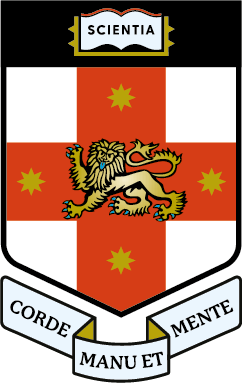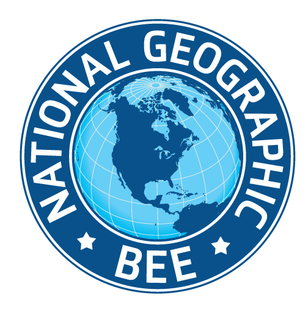
The University of New South Wales (UNSW), also known as UNSW Sydney, is a public research university based in Sydney, New South Wales, Australia. It is one of the founding members of Group of Eight, a coalition of Australian research-intensive universities. It is ranked 19th in the 2024 QS World University Rankings.
The William Lowell Putnam Mathematical Competition, often abbreviated to Putnam Competition, is an annual mathematics competition for undergraduate college students enrolled at institutions of higher learning in the United States and Canada. It awards a scholarship and cash prizes ranging from $250 to $2,500 for the top students and $5,000 to $25,000 for the top schools, plus one of the top five individual scorers is awarded a scholarship of up to $12,000 plus tuition at Harvard University, the top 100 individual scorers have their names mentioned in the American Mathematical Monthly, and the names and addresses of the top 500 contestants are mailed to all participating institutions. It is widely considered to be the most prestigious university-level mathematics competition in the world, and its difficulty is such that the median score is often zero despite being attempted by students specializing in mathematics.

The National Geographic GeoBee was an annual geography contest sponsored by the National Geographic Society. The bee, held annually from 1989 to 2021, was open to students in the fourth through eighth grades in participating schools from the United States.

Reach for the Top is a Canadian academic quiz competition for high school students. In the past, it has also been a game show nationally broadcast on the CBC. Matches are currently aired online through Reach for the Top's official YouTube channel. Teams qualify for national rounds through several stages of non-televised tournaments held at high schools throughout Canada during the year which are known as Schoolreach.
The United Kingdom Mathematics Trust (UKMT) is a charity founded in 1996 to help with the education of children in mathematics within the UK.

The National Science Bowl (NSB) is a high school and middle school science knowledge competition, using a quiz bowl format, held in the United States. A buzzer system similar to those seen on popular television game shows is used to signal an answer. The competition has been organized and sponsored by the United States Department of Energy since its inception in 1991.

Ravenswood School for Girls is an independent, Uniting Church, day and boarding school for Prep to Year 12 girls, situated in Gordon, an Upper North Shore suburb of Sydney, New South Wales, Australia.
The Hong Kong Certificate of Education Examination was a standardised examination between 1974 and 2011 after most local students' five-year secondary education, conducted by the Hong Kong Examinations and Assessment Authority (HKEAA), awarding the Hong Kong Certificate of Education secondary school leaving qualification. The examination has been discontinued in 2012 and its roles are now replaced by the Hong Kong Diploma of Secondary Education as part of educational reforms in Hong Kong. It was considered as the equivalent of the GCSE in the United Kingdom.

Mu Alpha Theta (ΜΑΘ) is the United States mathematics honor society for high school and two-year college students. In June 2015, it served over 108,000 student members in over 2,200 chapters in the United States and in 20 foreign countries. Its main goals are to inspire keen interest in mathematics, develop strong scholarship in the subject, and promote the enjoyment of mathematics in high school and two year college students. The name is a rough transliteration of math into Greek. Buchholz High School won first place in 2023 for the 15th time in the annually held national convention.
It's Academic is an Australian children's game show which is based on the long-running American version of It's Academic, and pits students from different schools against each other in a test of knowledge covering a number of diverse subjects including English, mathematics, science, geography, sport, music and popular culture.
The AAA Travel High School Challenge was an annual travel-themed scholarship competition run by the American Automobile Association, open to students in grades 9–12 in the fifty United States and the District of Columbia. First run in 2003 as part of AAA's centennial celebrations, the competition became an annual event and a premier high school scholarship program for a time. The competition was notable for its national coverage
The Australian Mathematics Competition is a mathematics competition run by the Australian Maths Trust for students from year 3 up to year 12 in Australia, and their equivalent grades in other countries.
The International Bible Contest is a worldwide competition on the Tanakh for middle school and high school Jewish students. It is held annually in Jerusalem, on Yom Ha'atzmaut. Because the event is officially sponsored by the Israeli government and the Jewish Agency, it is attended by the Prime Minister of Israel, Minister of Education and the Chairman of the Jewish Agency.

Taree High School is a government-funded co-educational comprehensive secondary day school in Taree, a regional centre of the Mid North Coast region of New South Wales, Australia.
In South Africa, matriculation is the final year of high school and the qualification received on graduating from high school, and the minimum university entrance requirements. The first formal examination was conducted in South Africa under the University of the Cape of Good Hope in 1858. In general usage, the school-leaving exams, which are government-administered, are known as the "matric exams"; by extension, students in the final year of high school are known as "matriculants" or, more commonly, "matrics". Once the Matric year has been passed, students are said to have "matriculated".
The Canadian Open Mathematics Challenge (COMC) is an annual mathematics competition held in Canada during the month of October. This competition is run by the Canadian Mathematical Society. Students who score exceptionally well on this competition are selected to participate in the Canadian Mathematical Olympiad.
In the US state of Texas science is one of several academic events sanctioned by the University Interscholastic League. It is also a competition held by the Texas Math and Science Coaches Association, using the same rules as the UIL.

The UNSW Business School at the University of New South Wales is a business school located in Sydney, Australia. The school offers 42 programs, including 26 undergraduate and 26 specialist master's degrees, as well as six MBA and executive programs through the Australian Graduate School of Management.
The Higher School Certificate (HSC) Economics course is a 2-unit elective course undertaken by students in New South Wales across their final 2 years of schooling. The course includes a preliminary program for study across 3 terms of Year 11, and an HSC course for study over 4 terms of Year 12. In 2012, 5,262 students sat the HSC Economics external examination, with 12.5% receiving the top performance indicator of a Band 6. The course aims to take a "problems and issues approach" to the teaching and learning of economics, with a particular emphasis on the economic problems and issues experienced by individuals and society.
Google Code-in (GCI) was an international annual programming competition hosted by Google LLC that allowed pre-university students to complete tasks specified by various, partnering open source organizations. The contest was originally the Google Highly Open Participation Contest, but in 2010, the format was modified into its current state. Students that completed tasks won certificates and T-shirts. Each organization also selected two grand prize award winners who would earn a free trip to Google's Headquarters located in Mountain View, California. In 2020, Google announced cancellation of the contest.







